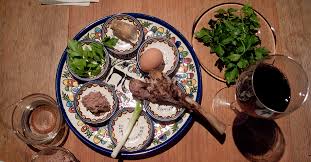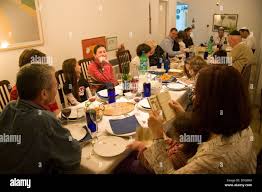Passover is one of the most important and widely celebrated Jewish holidays, observed by millions around the world. It is a festival rich in history, tradition, and deep spiritual meaning. Commemorating the Israelites’ liberation from slavery in Egypt over 3,000 years ago, Passover is a time for reflection, gratitude, and the reaffirmation of faith and freedom.
The Biblical Story of Passover
The origins of Passover are found in the Book of Exodus in the Hebrew Bible and in the Christian Bible. The Israelites, enslaved in Egypt for centuries, cried out to God for deliverance. God chose Moses to lead them to freedom, but Pharaoh refused to let them go. In response, God sent ten plagues upon Egypt, each increasing in severity. The final and most devastating plague was the death of all; firstborn males in Egypt. However, God instructed the Israelites to mark their doorposts with the blood of a lamb, so that the Angel of Death would “pass over” their homes, sparing their firstborns. The lamb was eaten that night in a special meal that night before they deported Egypt.
This event led Pharaoh to finally release the Israelites, allowing them to flee Egypt. They departed in such haste that they did not have time to let their bread rise, which is why unleavened bread, or matzah, is a central symbol of the holiday. The Israelites’ journey to freedom, their crossing of the Red Sea, and their eventual reception of the Torah at Mount Sinai mark the defining moments of Jewish identity and faith.
The Traditions of Passover
Passover is observed for seven or eight days (depending on tradition), beginning on the 15th of the Hebrew month of Nisan. The holiday is marked by several key traditions that reinforce its themes of remembrance and gratitude.

The Seder Meal
The Seder, held on the first two nights of Passover, is a ceremonial meal filled with symbolic foods and storytelling. The Haggadah, a text that narrates the Exodus story, is read aloud as participants follow a structured order of rituals. Each element of the Seder plate has deep significance:
Matzah: Represents the unleavened bread the Israelites ate during their hurried departure.
Maror (bitter herbs): Symbolizes the bitterness of slavery.
Charoset: A sweet mixture of apples, nuts, wine, and spices, representing the mortar used by slaves in Egypt.
Karpas (vegetable, usually parsley): Dipped in saltwater to recall the tears of the enslaved.
Zeroa (shank bone): Represents the Paschal lamb sacrificed in ancient times at the Temple.
Beitzah (roasted egg): A symbol of renewal and the cycle of life.
Four cups of wine are consumed throughout the Seder, each corresponding to a promise of redemption made by God. Additionally, an extra cup of wine is placed on the table for the prophet Elijah, who is believed to visit each home during Passover. The Seder ends with the reading w9th a number of the Hallel Psalms.
The Prohibition of Chametz
During Passover, Jews abstain from chametz, or leavened bread, in remembrance of the unleavened bread eaten by the Israelites. This means that any food made with wheat, barley, rye, oats, or spelt that has been allowed to rise is forbidden. Homes are thoroughly cleaned before Passover to remove any traces of chametz, a practice that also serves as a symbolic act of spiritual purification.
The Afikoman
A highlight of the Seder for children is the hiding and finding of the Afikoman, a piece of matzah that is broken and set aside early in the meal. After the meal, children search for the Afikoman, and the one who finds it usually receives a small prize. This tradition keeps younger participants engaged and ensures that the matzah remains central to the meal.
The Deeper Meaning of Passover
Beyond its historical significance, Passover holds profound spiritual and philosophical meaning. It serves as a reminder of the value of freedom, the importance of gratitude to God, and the resilience of the human spirit.
A Celebration of Freedom
Passover is often referred to as the “Festival of Freedom,” highlighting its central theme of liberation. The Exodus story reminds us that freedom is not merely about physical escape from oppression but also about the responsibility that comes with it. For the Jewish people, the journey from slavery to freedom was not just about leaving Egypt but about receiving the Torah and embracing their destiny as a nation with ethical and moral duties,along with stressing their relationship as a nation and their personal relationship with God.
Gratitude and Reflection
Passover encourages reflection on personal and collective struggles. The retelling of the Exodus story is meant to inspire gratitude for the freedoms we enjoy today and to remind us of those still suffering under oppression. Many families take this opportunity to discuss social justice issues and ways to help those in need. Also to give thanks to God for giving them the Freedoms that they celebrate during Passover!

Continuity and Family Bonding
Passover is a time for family gatherings and intergenerational storytelling. It connects Jewish people to their heritage and strengthens their identity. The emphasis on engaging children ensures that traditions are passed down, keeping the history and lessons of Passover alive for future generations.
Passover Around the World
While the core traditions of Passover remain the same, different Jewish communities have unique customs:
Sephardic Jews often include rice, beans, and legumes (kitniyot) in their Passover meals, whereas Ashkenazi Jews traditionally avoid them.
Ethiopian Jews (Beta Israel) prepare a special type of matzah known as Kita.
Moroccan Jews hold a tradition called Mimouna, a festive gathering at the end of Passover celebrating freedom and abundance.
Conclusion
Passover is more than just a historical commemoration; it is a celebration of freedom, resilience, and faith. Its traditions, from the Seder meal to the prohibition of chametz, serve as reminders of the struggles and triumphs of the Jewish people. Whether through storytelling, symbolic foods, or acts of kindness, Passover continues to inspire individuals to reflect on their own journeys and to appreciate the blessings of faith, freedom and family. In a world that still witnesses oppression and injustice, the lessons of Passover remain as relevant today as they were thousands of years ago.
